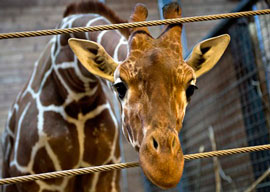
March 30, 2014

Marius
Nothing is important or unimportant, but thinking makes it so. Nevertheless, other people’s priorities infuriate us: We think them fools for worrying over trifles, while they disregard entirely what we think is of the greatest significance.
No one’s emotions are stirred, however, in precise proportion to the importance we ascribe to the matters that stir those emotions. I may think the Crimean crisis is a turning point in world history, but I am much more concerned by a tax demand or an argument with my wife. I do not think I am unusual in this; on the contrary, it is perfectly normal, and this in theory should make intellectuals in particular more tolerant of the interests others express, though it seldom does. Besides, a world in which everyone was moved in precise proportion to a rational scale (if such a scale could ever be laid down) would be intolerably boring.
There is a further point: Man is irremediably a symbol-manipulating animal. What may seem at first trivial is often symbolic of something much more important: Disagreement over something trivial may really be disagreement about fundamental philosophical problems. And at least for intellectuals, there is no greater fun to be had than disagreement over the fundamentals of philosophy. Such disagreements stave off boredom and also the fear of personal insignificance that bests us all whenever we look at the starry heavens above.
So let us not sneer, then, about the worldwide, or at least Europe-wide, furor over the death of Marius, the two-year-old giraffe in Copenhagen Zoo. Marius was deemed by the zoo’s scientific staff to be surplus to its requirements and to those of all zoos throughout Europe. He was therefore shot, autopsied, and thrown to the zoo’s lions (four of whom, it so happened, were soon to follow him). The death of a single Giraffa camelopardalis reticulata born in captivity sparked more commentary and emotion than the million human tragedies that must have occurred the same day. Often, it seems, we love animals more than ourselves, and with good reason (by “ourselves” I mean other human beings, not ourself). The subsequent polemics were about more than the fate of poor little Marius.
The combination of the appealingly gentle nature and face of the giraffe, and the completely unemotional, deadpan, and almost mechanical pronouncements of the zoo’s scientific director, Bengt Holst, was perfectly calculated to fan the passions of many polemicists, especially those in professional need of something to say. Marius was a test case for many antinomies: thought versus feeling, fact versus value, Man’s dominion versus Man’s guardianship of nature, sense versus sensibility, unvarnished truth versus tact, appearance versus reality, science versus religion, expedience versus deontology, rationality versus instinct, prose versus poetry, and no doubt many others. If Marius had been not a giraffe but some unattractive beast such as a star-nosed mole or an aye-aye (both exceptionally ugly), let alone a crocodile, boa constrictor, or Komodo dragon that had just eaten a child, there would have been no outcry. Nature mystics, who believe in biodiversity as a good in itself, are generally not worried by the prospect of the elimination of the Guinea worm Dracunculus medinensis or the much more widespread but equally repellent Ascaris lumbricoides (there is, as far as I know, no Society for the Preservation of the Intestinal Roundworm of African Children, though there is a Save the Guinea Worm Foundation with a hilarious website that I heartily recommend).
It is when you look at the commentary on reports of the case of Marius that you realize self-expression is not an unequivocally good thing. I am unsure whether the ease nowadays of expressing oneself in public, thanks to the Internet, has called forth an immense quantity of bile or whether the bile preexisted the Internet and was only awaiting the Internet to be publicly expressed, but I suspect that bile rises to meet the space which will accommodate it. Certainly the blogosphere gives the impression that the world is filled with bitter, angry, resentful people who spit venom at the slightest pretext and think that abuse is an argument”indeed, the only argument.